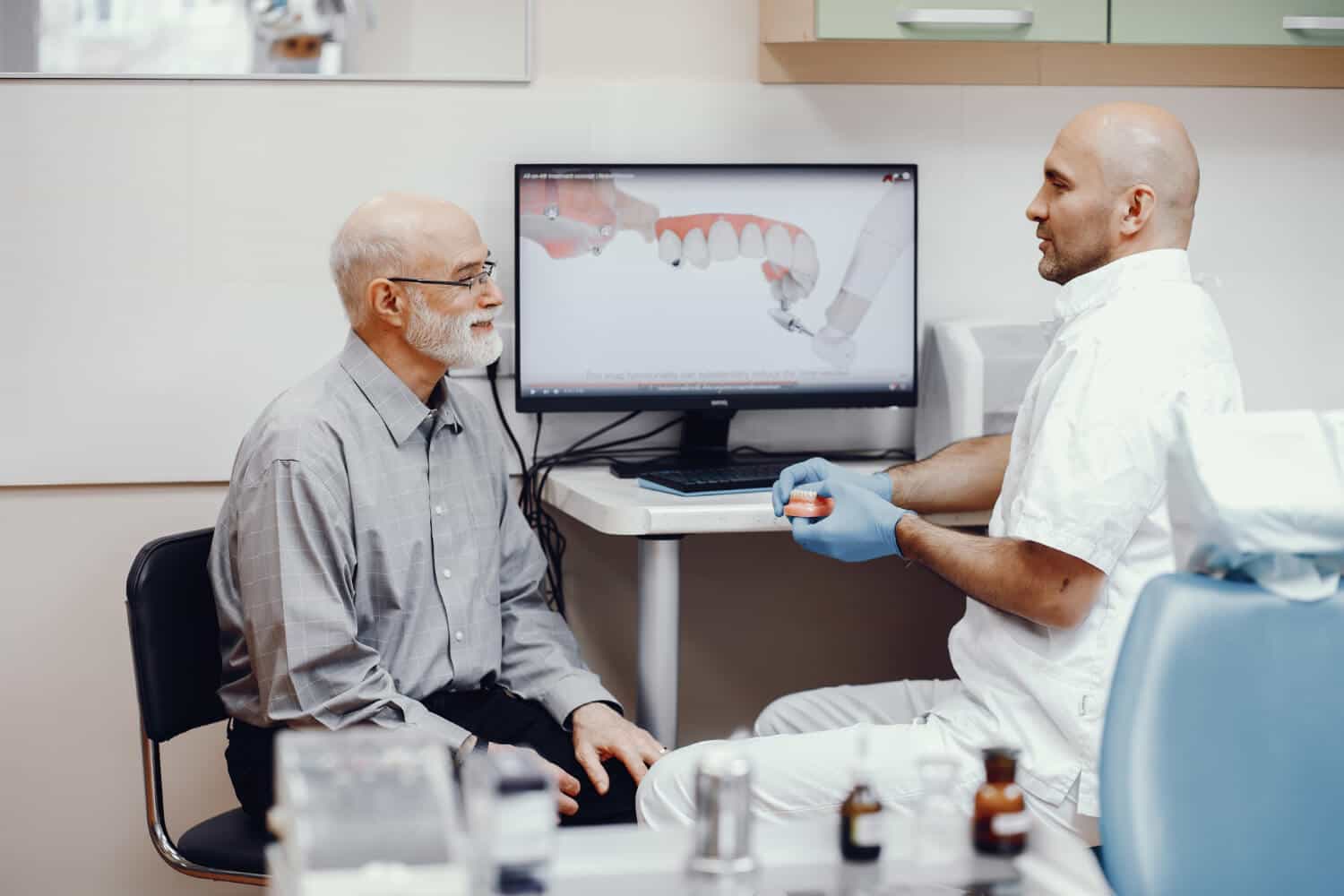Denture implants are a fantastic option for anyone looking to restore their smile and regain the confidence that comes with it. They’re designed to be a long-lasting, secure solution that combines the benefits of dental implants with the ease of dentures. But despite their impressive success rates, like many medical procedures, denture implants near me can sometimes face complications. If you’re wondering why denture implants might fail, it’s important to understand the key reasons behind it—so you can take steps to avoid them and enjoy a healthy smile for years to come.
Common Causes of Denture Implant Failure
Even with the best intentions and care, there are a few factors that could increase the risk of implant failure. Let’s take a closer look at what might go wrong and how you can help keep your dental implants working smoothly.
1. Gum Disease and Poor Oral Hygiene
You’re probably aware of how important it is to keep your teeth and gums clean, but this is especially true when it comes to denture implants. Gum disease, caused by harmful bacteria, can attack the tissue surrounding your implants. If left untreated, the infection can spread, weaken the bone supporting the implants, and eventually cause them to fail. Practising good oral hygiene—brushing, flossing, and regular check-ups—can help you avoid these issues.
- Pro tip: Think of your gums as the foundation for your implants. The healthier they are, the stronger your implants will be!
2. Not Enough Bone to Support the Implant
Did you know that your jawbone naturally shrinks over time if you lose a tooth? If there isn’t enough bone to anchor the implant, it won’t integrate properly. This is why people who have been missing teeth for a long time without intervention are more at risk. The good news is that procedures like bone grafting can help rebuild the bone, giving your implants the best chance to stay secure.
3. Underlying Health Conditions and Medications
Some medical conditions, like diabetes or autoimmune disorders, can interfere with the healing process, slowing down your recovery and making it harder for the implant to bond with the bone. Medications like those used to treat osteoporosis can also impact how well your body handles the implant. If you have a medical condition, it’s crucial to work closely with both your dentist and doctor to ensure everything is managed properly before you go ahead with the procedure.
4. Smoking and Other Lifestyle Choices
If you smoke, your gums could be deprived of the oxygen and nutrients they need to heal after surgery, increasing the chances of infection. Smoking also reduces blood flow, which affects healing and can weaken the tissue around your implants. Reducing or quitting smoking, even temporarily, can make a big difference in whether or not your denture implants near me succeed.
- Lifestyle tip: Quitting smoking is just one change that can help! Eating well, cutting back on alcohol, and staying hydrated are other ways to keep your mouth healthy.
5. Excessive Force from Grinding Teeth
Do you catch yourself grinding your teeth at night? This is more than just a bad habit—it can be harmful to your denture implants. The constant pressure from grinding (also known as bruxism) can cause the implants to shift or even break. A custom night guard can help protect your teeth and implants while you sleep, making sure they stay secure for the long haul.
6. Poor Placement of the Implant
Not all dental implant procedures are created equal, and the success of your denture implants relies on how skillfully they are placed. If your dentist doesn’t position the implant correctly, it may not fuse with your jawbone the way it should, leading to eventual failure. This is why choosing an experienced, reputable dental professional is crucial to getting the results you want.
The Value of Quality Care
It might be tempting to look for a bargain when it comes to dental work, but opting for lower-cost care can increase your risk of implant failure. Remember, quality dental care is an investment in your long-term health. Choosing a trusted clinic with experienced professionals ensures your implants are placed correctly and that you receive top-notch care before, during, and after your procedure.
How Can I Protect My Denture Implants?
The best way to prevent implant failure is to take an active role in your oral health. Here are a few simple tips to make sure your denture implants near me stay in great shape:
- Brush and floss daily: Keep bacteria at bay and maintain gum health.
- Attend regular check-ups: Your dentist will monitor your implants and catch any issues early on.
- Quit or reduce smoking: It can be tough, but the health benefits for your gums and implants are worth it.
- Wear a night guard: If you grind your teeth, this will protect both your natural teeth and implants.
- Stay proactive about your health: Managing conditions like diabetes can help your body heal properly after surgery.
Conclusion: Protecting Your Smile for the Long Term
Denture implants offer a reliable way to regain a strong, beautiful smile, but like all medical procedures, they require proper care and attention. From managing your gum health to choosing the right dentist for dentures implants near me, taking the time to prevent potential problems will help ensure that your implants last for many years. If you’re considering denture implants or have any concerns about maintaining them, it’s always a good idea to consult an experienced dental professional.
Dr. Finkelstein, who has over 30 years of experience in dental implant care, is here to guide you through the process with personalised care. With his expertise, you can feel confident that your smile is in the best hands. Prioritising oral health and dental care in Australia, Dr. Finkelstein ensures that every step is tailored to your needs. Ready to take the next step? Schedule a consultation today to learn more about how denture implants can work for you!
Image by Freepik





